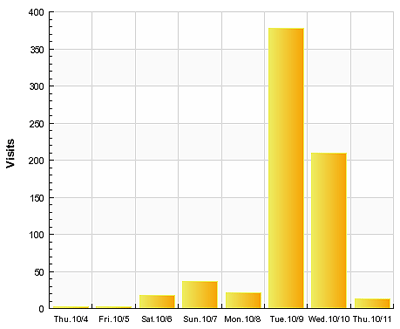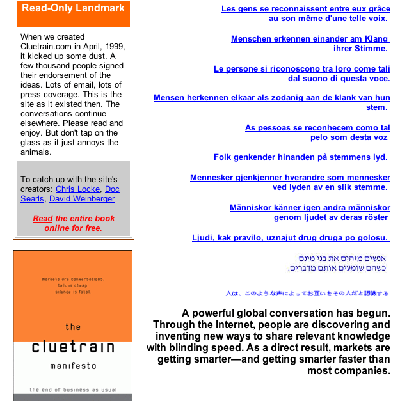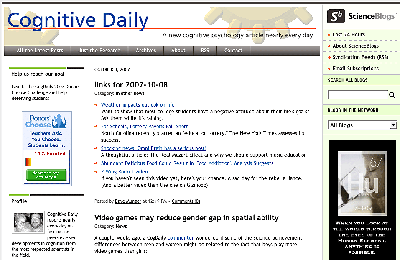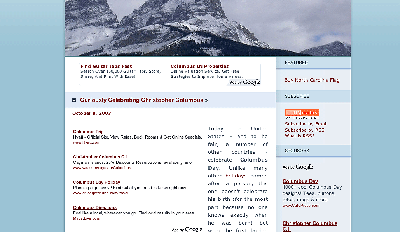This week, we’re writing about the five best web sites and five worst web sites related to our research topics.
Today, I’m focusing on one best site and one worst site related to communications software. My topic is about building sustainable, findable, objective journalism online, and software and computers are a key component because they are the tools that make online journalism happen.
I’m trying to evaluate online sites holistically now, going beyond just one posting that might grab my attention to make sure posts over time are credible, useful and objective.
So on to it:
One best site: The Wall Street Journal’s Business Technology blog. As others have noted in class discussions, blogs associated with media organizations that we already trust carry more weight than independent blogs.
Ben Worthen, lead writer, joined The Wall Street Journal from CIO Magazine, and the blog can include contributions from other reporters and editors at the Journal, WSJ.com and Dow Jones Newswires.
Worthen defines his subject broadly, including a fun post about TV’s latest IT guy, Chuck, from the Nerd Herd, and posts about the coming generational clash between older and younger workers. He even talks with design guru Don Norman from Northwestern University about the importance of design in software.
Of course, technology news is included as well, but I appreciate his broad sweep of including business management with technology, because the best technology takes into account how people work.
One worst site: The Baltimore Sun’s David Zeiler has a blog since May 2007 called “Apple a Day,” following developments for Apple, Inc. I in no way mean to denigrate Zeiler’s knowledge or skill in sleuthing out all Apple developments. He does a great job of writing actively about every Apple company twist and turn, from online rumor sites to official company information.
However (you knew that word was coming), by adding opinion to spice up his content and writing, he ends up sounding like a spoiled customer in his latest posting, which denigrates Apple’s current customer service, pricing policies and partnerships. It’s called, “How many times must Apple shoot itself in the foot?”
He posted this article on the same day that Apple stock hit an all-time high.
It doesn’t appear that the company is shooting itself in the foot — it just appears that some customers are disappointed that they can’t hack the Iphone.
I found the site through the class blog of David Shabazz, “Write for Freedom.” He has a feed set up called “Around the World,” and many posts on it are about Apple. I love those kinds of feeds in blogs, but wonder whether a feed that only uses keywords or tags as filters will give readers consistent quality.
I clicked on the Zeiler blog, primarily because the headline seemed interesting and controversial, and then was disappointed in the results. Zeiler’s working hard; he’s a designer who probably volunteered to do a blog on the side because he was interested in Apple. But he needs more credentials for me to come back again.
Does Apple have some connection to Baltimore? Does Zeiler own Apple stock? Why should Baltimore newspaper readers trust his blog more than a just-as-accessible Apple blog from California? What does Zeiler bring to the information table that no one else can? Are newspapers turning to blogs too much because staffers love to do them, will often do them for free on top of other duties, and the technology is quick and easy? Is the quantity obscuring quality?
(Confession: I own 10 Apple shares, recommended to me by a 17-year-old, which I bought shortly before the Iphone was released. I do not own an Iphone).






